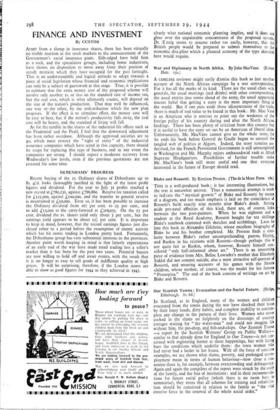A CARELESS reviewer might easily dismiss this book as just
another account of the North African campaign by a war correspondent. For it has all the marks of its kind. There are the usual chats with generals, the usual meetings (and drinks) with other correspondents, the usual entries into towns ahead of the army, the usual apparently sincere belief that getting a story is the most important thing in the world. But if one puts aside these idiosyncrasies of the trade, there is much of real value to be found in this book:, Mr. Mac Vane is an American who is anxious to point out the weakness of the foreign policy of his country during and after the North African landings. There has been plenty of criticism from this country but it is useful to have the story set out by an American of liberal ideas. Unfortunately, Mr. MacVane cannot give us the whole story, for he ends his book before General de Gaulle began to unravel the tangled web of politics at Algiers. Indeed, the story remains un- finished, for the French Provisional Government is still unrecognised at Washington and Mr. Murphy enjoys ambassadorial rank at Allied Supreme Headquarters. Possibilities of further trouble make Mr. MacVane's book still more useful and one that everyone interested in the future of Europe should read.


























 Previous page
Previous page